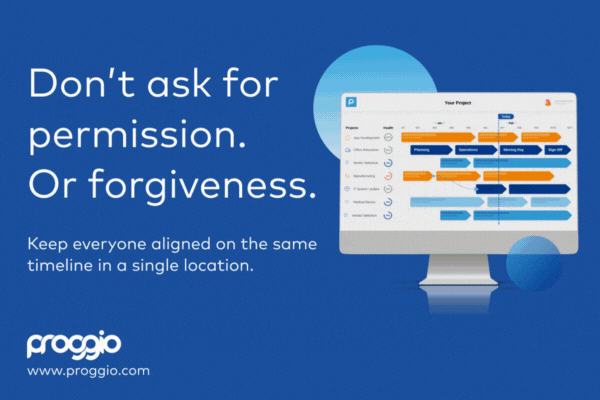
Managing Disgruntled Stakeholders: All Feedback is Useful
“You can please some of the people all of the time,
you can please all of the people some of the time,
but you can’t please all of the people all of the time.”
John Lydgate adapted by A. Lincoln
In complex programs and projects (as well as in life in general) it seems that you can’t always satisfy everyone. Even if you put out a great product someone will think it should be more perfect, different, or delivered sooner for less.
If you choose a vendor, won’t like your pick. Some think there is too much communication while others think there is not enough. Some have an old grudge, an ax to grind, and no matter what you do it won’t be enough, they’ll criticize and come up with should haves and could haves that make your decisions look lame. Some like green, others like blue.
The master project manager cares about what the critics have to say but is not driven or upset by it. The PM cares because what critics say may be relevant and useful and/or because others my hear it and it may affect their decisions, opinion of the product, and the PM’s performance. The goal is to satisfy everyone, if possible. And it is not always possible.
As a rule, it is best to hear what is being said about your project, decisions, and results, objectively assess its content and relevance so you can decide what to do about it Note that if you ignore it, you open yourself to the risk of making a disgruntled stakeholder even more angry and dissatisfied.
Timing
Criticism is most valuable when it is received before action is taken. If a plan or decision is criticized there is an opportunity to make changes before it is acted upon with minimal cost. After the fact, the information may be useful as a means for learning, but it won’t affect the outcome or may be too costly to use.
In one case a stakeholder, let’s call her Jane, criticized the choice of a contractor based on history with the vendor. The information would have been useful in making the decision to put the vendor on a “short list” after an initial assessment. When the list was made public Jane complained, with disdain for the decision makers – “How could you shortlist them after what they have done?”
Because the final choice had not yet been made Jane’s information could still be used. Had Jane waited until the final choice was made, the information would have been completely useless and no more than a way to make the decision makers look bad or somehow make Jane look good.
Soliciting Feedback
To get timely criticism it must be solicited. This may take the form of focus groups, or asking individuals to provide their opinions so you can use them to make better decisions.
Who do you ask? As usual, it depends on the situation – sometimes you seek out people with expertise in the subject matter, or who have ‘good’ taste, or who will be affected by the decision.
For example, if you are considering design you would want to solicit technical design input from engineers, software experts, etc. If it is about look and feel, then it would be potential users or clients, as well as designers with aesthetic views.
Note that it is not uncommon for project managers and decision makers to avoid getting input from others. They may believe that it overcomplicates the decision making and is costly in the time and effort needed to prepare effective solicitations, sift through, assess, and respond. Avoiding feedback may also be caused by “ego issues” like a sense of superiority or insecurity.
While it is true that extra effort is required, not soliciting feedback opens the risk that stakeholders will be dissatisfied and critical after the decision has been acted upon to create a fait accompli.
Note that we are not implying that a democratic vote should be taken or that opinions received must be used to make the final decision. The project plan and organizational protocols and policies establish the authority of decision makers. What is being implied is that it is wise to solicit input as a means of making better decisions.
Advertisement
[widget id=”custom_html-68″]
Substantive or Empty: Fact Check
The timing of criticism and the solicitation of feedback are important as is considering the accuracy and relevancy of the content.
Was Jane’s experience with the vendor recent or in the far distant past? Had the contractor learned from the experience and changed its methods and personnel to avoid a repeat of poor performance? What were other customers’ experiences? What was Jane’s relationship with the vendor, for example was there a personal issue that tainted Jane’s view? How complicit was Jane in the vendor being unsuccessful?
To make effective use of critical input it is necessary to assess, and fact check it in order to make an informed decision. To simply take it at face value, whether you accept it, reject it, or ignore it, leaves the door open for additional criticism and loses the benefits that may come from the feedback.
Politics
There are political issues. Feedback from a senior stakeholder must be addressed in a way that does not create unpleasant ripples. Imagine if Jane was the project’s senior sponsor or a highly placed and influential client. Would questioning his/her/their opinion result in an explosive response or would it be viewed as the normal and wise thing to do? That depends on Jane’s mindset.
Stakeholders are people with biases and beliefs that are often perceived as being “truths.” Questioning their opinion may be taken as a personal affront. So be careful.
Ignore or Respond
If you receive feedback respond. Ignoring it risks upsetting its source and demotivating people from giving feedback in the future.
The response may be a simple statement like “Thank you. We will take your input and fold it into our decision making.” This recognizes the effort taken by the source while not committing the decision makers to following the advice offered. You might want to go further and give reasons for not complying or to say how you chose to make a change based on what you have received.
Open To Criticism
If you are open to feedback and criticism, solicit it, and respond with courtesy and respect, you will have fewer disgruntled stakeholders and better decisions.
